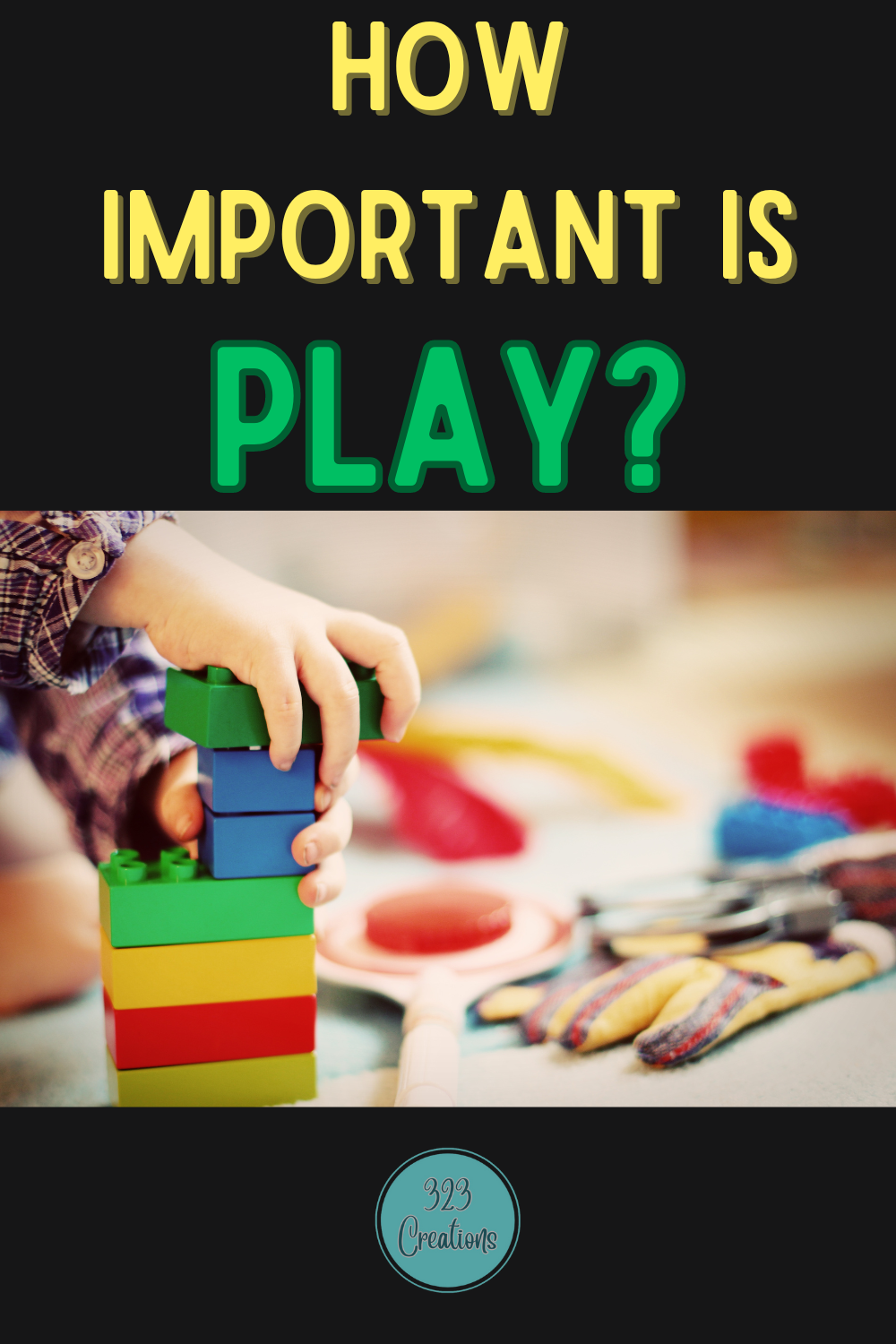As adults, we see children playing, and think it’s just play. However, children who play are developing creativity, oral language, and social-emotional skills that will help them solve problems and get along with others later in life. Over the past few years, children have been shut off from other children and many adults, causing a lack of play and language development. The use of technology has also replaced conversation and interaction that helps children develop social-emotional skills. Resources that are open-ended, meaning children learn by using them in different ways, help to develop a variety of skills and can be used at multiple stages of development.
Learning through play can occur in many settings. A few are listed below, with examples of how to encourage play in your child’s life. Follow me for more updates to come soon!
This post contains affiliate links. If you click on one of the links, I may receive a commission that will not affect your prices.

In the Kitchen
The kitchen provides many times for play that help children learn! Measurement is learned as children use measuring cups to follow a recipe. This helps develop the concept of more/less, volume, quantity, and fractions. Following a recipe also helps children follow step by step directions.
Using cups and bowls, even putting away dishes, helps develop spatial awareness, as children learn to stack dishes and fit them into a cabinet.
Baking and cooking (with adult supervision) is a great way for children to understand the change in states of matter, when a liquid becomes a solid when baked. Telling time can be introduced by timing how long something cooks as well.
The possibilities are endless when it comes to how much children can learn from the kitchen. Most of all, the interactions with the adult creates a priceless memory that the adult and child will remember for a lifetime.
Try some of these resources to increase your play in the kitchen!
Outdoors
Playing outdoors can be more than just sending kids outside with a ball. There are many outdoor activities that lend themselves to learning about science! Gardening and exploring insects are only part of the possibilities of outdoor play. Think about what you would do inside, but need more space. Take it outdoors!
Check out these fun outdoor resources!
Social Studies
When we think of social studies, we think history. Social studies also includes community awareness, city and local government, and careers. Consider dressing up and pretending to be in different jobs or careers – this helps students become aware of community. Social studies also includes developing social skills and character development. Service learning is a fun option to build compassion for others. Map making skills can fall under social studies or science, depending on what you’re mapping. If children are drawing a simple map of the community or learning about other countries, there are many fun ways to integrate this into your learning fun!
While Traveling
When you travel, it’s easy to give the kids a digital device and let them play a game on their own. However, there are other options that are more fun! Consider a game that involves all in the car. This requires communication and conversation. There are also games that involve looking for things as you ride, such as counting stop signs or looking for certain roads. Don’t forget about songs, audio books, and following a child-friendly map! Check out the options below.
Eating Out
Eating out with children can be a challenge. Once again, there are other options to the digital device. Many restaurants have kids menus with puzzles, games, and coloring pages. I encourage you to do these WITH your child, not only because it helps you connect with your child, but also because it’s fun! If there are no kids menus, consider bringing similar coloring pages or puzzles to complete with your child. Don’t use the same things that you do at home, because something “new” will be more likely to hold their attention. For older children, they can learn from menus! Have children look at the menu and add up the cost of their meal. Another option is to see what a menu looks like and create a menu at home for favorite dishes. There are several options below that are good for restaurants.
Playroom
Think about what you played with as a child. Traditional blocks, puzzles, dolls, pretend cleaning, and cars are always good toys that teach many things. Blocks and puzzles help with math skills, dolls and cleaning help develop caretaking and hygiene skills, and cars help children explore force and motion. Don’t hesitate to play WITH your child, as they need someone to model HOW to play with blocks (build not throw), as well as other types of play. These traditional types of play feed into other more creative play, which comes as children have time to explore and come up with situations on their own. Try one of these traditional play options with your little one!
Pretend Play
When children pretend, they are “acting out” like the adults in their lives. Many times, they’ll copy what they see from TV or videos, act like something they have observed, or pretend to be something or someone they admire.
If a child pretends to bake a cake, they might have helped in the kitchen, or watched a TV show about baking. If a child pretends to be a superhero, they probably watched a movie about one. They might even take the next step to make their own superhero, with their own creative characteristics. I used to pretend play like I was in an office when I was with my friend. I remember her having a small table with some paper and an old calculator in her room. We came up with so many things to play, just pretending to be like the adults we had seen.
All of this pretend play is important for developing creativity and problem solving. It creates a sense of story, essential for writing skills later in life. The best part of pretend play is that it is so open-ended, you just need a few props. Sometimes, children can just use a few things from other places in the house, but if you need a few fun extras, check out the links below.
A Cash Register always a favorite!
Children learn through play. Even though it seems they are “just playing,” remember that they are being creative, developing problem solving skills, and role-playing what they observe about life. Play helps them communicate and develop speech and language, and it helps them develop fine motor skills as they manipulate objects. Most of all, play is FUN! What are your favorite ways to play with your children? Leave a comment below!


